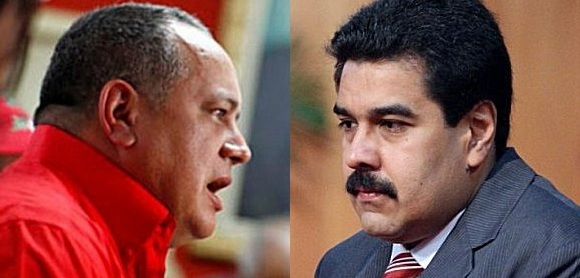 These are tense hours indeed in Venezuela where all is uncertainty. The health bulletins on Hugo Chávez, administered almost like an intravenous drip by Nicolás Maduro, the vice-president who finds himself acting president — far more forthcoming and “credible” than anything emanating from the Information Ministry — are ultimately the closest to any solid ground. Far more so than even the most immediate institutional future.
These are tense hours indeed in Venezuela where all is uncertainty. The health bulletins on Hugo Chávez, administered almost like an intravenous drip by Nicolás Maduro, the vice-president who finds himself acting president — far more forthcoming and “credible” than anything emanating from the Information Ministry — are ultimately the closest to any solid ground. Far more so than even the most immediate institutional future.
It is now virtually a given that, come January 10, Chávez will be in no shape to attend the inauguration for his new presidential term. Chávez is reportedly conscious (Maduro dixit) with lung complications and fighting for his life. This coming Saturday (the 5th), the Legislative Assembly will choose its new authorities with Diosdado Cabello sure to be re-elected Speaker.
It so happens that the Constitution rules that in the “temporary absence” of the president-elect, a majority vote of the Legislative Assembly allows its Speaker to replace him for 90 days with the possibility of extension for a further 90-day period. In other words, as soon as he has been confirmed as Speaker the day after tomorrow, Diosdado Cabello could be running Venezuela until July 10, 2013.
So where does that leave Nicolás Maduro, the “anointed” heir of Chávez, according to the comandante’s own lips in his “political will” broadcast on December 9?
Until the presidential inauguration date of January 10, Maduro will remain the link between Caracas and Havana (this applies to the Castro brothers, his mentors, just as much as to the hospitalized Chávez). In short, this gives Maduro just one week to bring the Chávez movement into line without the man, at a time of every indication of a split leadership in the near future.
Two trinities
Because on the one hand, Cabello incarnates a potent trinity of factors — leadership of the PSUV ruling party (as its current chairman), the helm of the Legislative Assembly (as Speaker) and as a strongly representative figure of the Bolivarian armed forces (as an ex-lieutenant who fought shoulder-to-shoulder with Chávez as from his 1992 coup attempt).
But on the other hand, the anointed “heir” Maduro flaunts his own trinity from the legacy Hugo Chávez is leaving behind. Firstly, he represents the export version of the Chávez model as Venezuela’s foreign minister for the last six years — a role which has made him a familiar figure in all countries with which the Bolivarian leader maintains ties.
Secondly, Maduro is Venezuela’s bridge to filter the relationship with Cuba — respected by Fidel and Raúl Castro while a more moderate admirer than his fanatical predecessor in the vice-presidency, Elías Jaua (Cabello is so anti-Castro that he never joined Chávez on his Cuban trips).
Thirdly, Maduro is the face of legality in the process of transition or delegating power. Elementary — in the last nationwide broadcast from Havana, the vice-president was accompanied by the daughter of Chávez, Rosa Virginia, and her husband along with Cilia Flores, a key official in the Chávez administration. Flores is currently the national Attorney General and formerly a Legislative Assembly Speaker but happens to be Nicolás Maduro‘s wife. A powerful team, no wonder.
Rumour has it
As for the rumour mill, far right newspapers like Madrid’s ABC report the comandante as in an induced coma while journalists like the Venezuelan Nelson Bocaranda in his column “Run Runes (Rumours)” tell us that he is in such a bad condition that he has had a new operation by Russian doctors and even that Cristina Kirchner travelled incognito to Havana to visit him (this journalist seems unaware of just how allergic the Argentine president is to long flights and Caribbean heat). At the same time, both Brazil’s Dilma Rousseff and Bolivia’s Evo Morales have expressed “concern” over their Venezuelan colleague’s future.
Meanwhile Uruguay’s President José Mujica, who expressed his desire to fly to Cuba to say goodbye to his friend, was a bit more down-to-earth — he instructed Raúl Sendic, the head of the state oil company Ancap, to cancel part of Uruguay’s 800-million-dollar debt with Venezuelan counterpart PDVSA.
Washington also has its own contingency planning against the uncertainty — yesterday it was revealed that the State Department, via its Western Hemisphere under-secretary Roberta Jacobson, had renewed its conversations with Caracas with a view to restoring normal diplomatic relations. The next step would be to accredit ambassadors to Caracas and Washington while returning to co-operation between the Miraflores government house and the DEA (Drug Enforcement Administration) against drug-trafficking.
Source: Buenos Aires Herald (Argentina)











[…] Venezuela: Split leadership […]